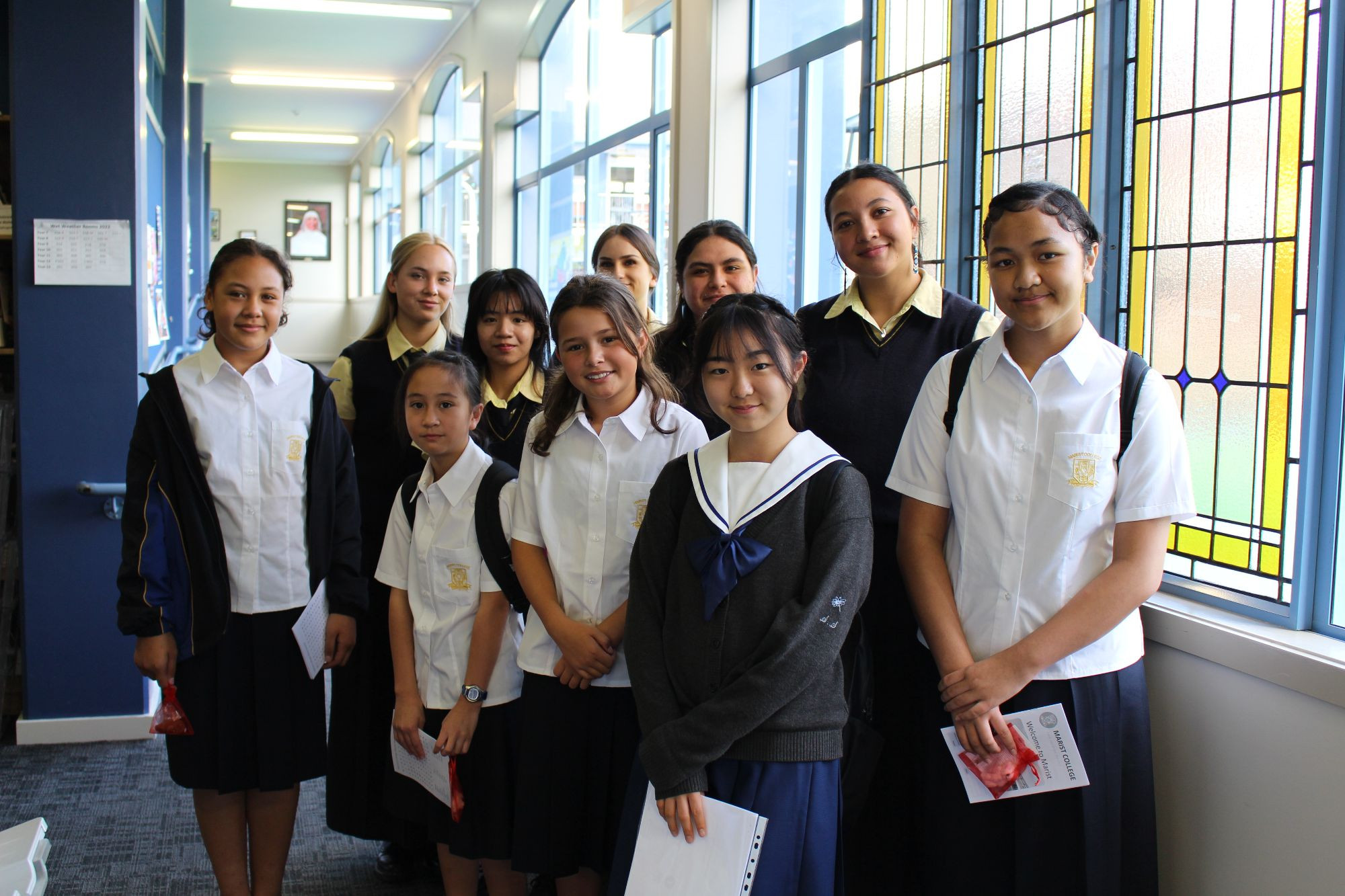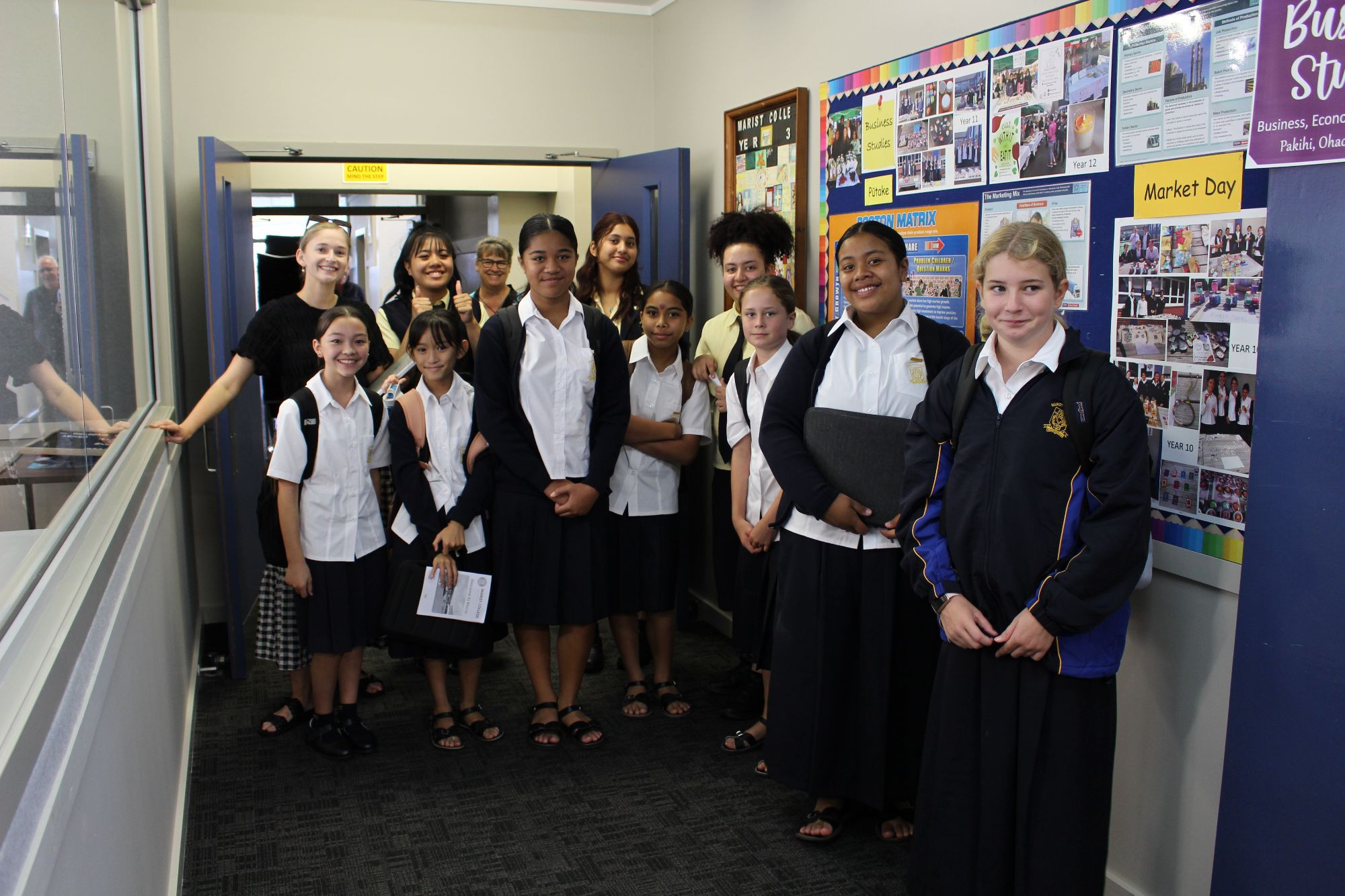Restorative Practices
Marist College has adopted a Restorative Practices approach to managing student behaviour. Restorative Practice is a relational approach to school life grounded in beliefs about equality, dignity, mana and the potential of all people. At Marist College we are fortunate to work with respectful, receptive and collaborative students and families, however, we continue to need parents support. We believe the Restorative Practices behaviour management model affirms and supports the special Catholic character of our College. The Restorative Practice model focuses on building and maintaining positive, respectful relationships across the school community and offers school staff best-practice tools and techniques to restore relationships when things go wrong. By building and maintaining positive, respectful relationships within a school, staff to staff, staff to student and student to student, issues are more easily managed.
https://pb4l.tki.org.nz/PB4L-Restorative-Practice https://vimeo.com/174752999
KiVa Anti-bullying Programme
What is KiVa? KiVa is an evidence-based bullying prevention programme that has been developed by the University of Turku, Finland. The effectiveness of KiVa has been proven through randomised control trials, together with a range of different studies. KiVa is being used around the world in over 18 different countries.
How does KiVa work? The goal of KiVa is to prevent bullying and to teach how to manage cases of bullying effectively. The programme has been developed from decades of extensive research into bullying and is based on three main elements: prevention, intervention and monitoring.
Prevention – to keep bullying from happening The preventive actions focus on our students learning how to prevent bullying. Student lessons taught in our junior school, and online games are examples of these kind of actions and form the foundation of KiVa.
Intervention – Tools to tackle bullying The interventions in KiVa are targeted specifically at students who have been involved in bullying. It is a non-threatening approach, with the goal to provide students with solution-focused tools used to put an end to bullying.
Annual monitoring - We monitor the effectiveness of the KiVa program through an annual online survey for students. This feedback provides us with information on how to improve our bullying prevention work.
Guidelines for personal digital devices and/or accessories (earbuds)
Digital device and accessories use: We are a cell phone free school. This means that cell phones are completely banned during school time, in and outside school. Students may bring cell phones to school; however, they are not to be seen or heard while students are on school premises. Accessories related to digital device use, such as earbuds and headphones must be wired, should only be used as part of teaching and learning programmes, and should not be seen at break times.
MARIST UPDATE (Earbuds): No wireless earbuds allowed.
Strike one: Student caught using/checking cell phone during school hours and/or using earbuds and headphones outside of teaching and learning. Phone and/or earbuds/headphones confiscated till the end of the day. Parent/caregivers will be called by a Dean to advise.
Strike two: Student caught using/checking cell phone during school hours and/or using earbuds and headphones outside of teaching and learning. Phone and/or earbuds/headphones may be confiscated till the end of the week. Parent/caregiver called by a Dean to arrange collection from the main office. Marist College takes no responsibility for confiscated, lost or damaged cell phones or accessories.
Areas out of bounds
In the interest of safety and general care of the community, certain areas are deemed out of bounds. Those listed below are the guidelines staff and students on duty will use to monitor such areas. Their judgement on these matters is to be accepted by all students.
- Staff parking areas and driveways.
- All corridors during break 1, 2 and before school.
- Entrance and foyer of the gymnasium.
- Access ways - congregating and sitting on steps or stairways.
- Close to the boundary fence of the school grounds.
- Close to the convent.
- Behind the juniors classroom block.
- 35 Alberton Avenue.
- Gym toilets and change rooms at Break 1 and 2 (unless under teacher supervision).


